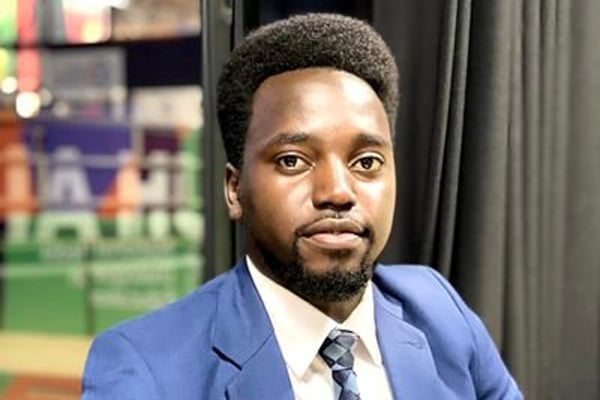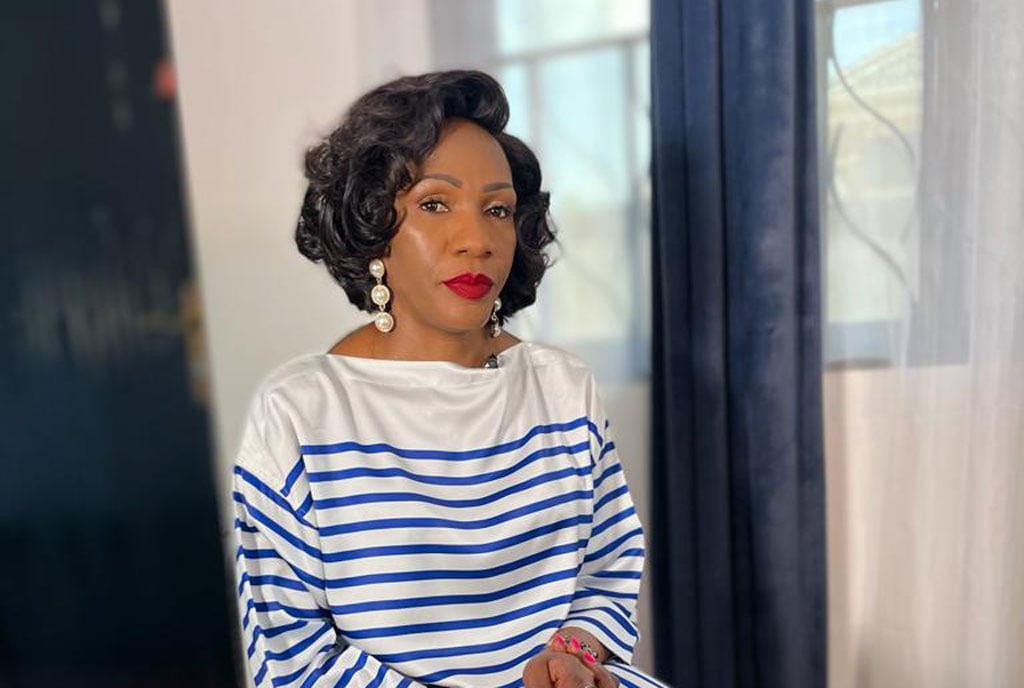Prime
30 years on, Mwattu still the drug Dr Bbosa recommends

Dr Bbosa , second from left together with the cast of Thats life Mwattu. PHOTOS/ FILE
What you need to know:
- Sam Bagenda, who portrayed Dr Bbosa in the series, took Sunday Monitor on a journey down memory lane.
- The series concluded its 14-year run in 2007, spanning over 800 episodes. Despite sporadic reruns on various TV stations, one significant aspect stands out—the series faced an abrupt ending. Bagenda acknowledges this, attributing it to an overextension fuelled by the audience’s deep connection with the characters.
That’s Life, Mwattu!, arguably Uganda’s most popular and long-running TV series, turned 30 this year.
The series, produced by the drama outfit the Ebonies, follows the life of Dr Dick Walusimbi (Paul Katende), who becomes frustrated with his bratty partner Vicky (Rose Kamya) in the city. Dick decides to take his search for Ms Right—at the behest of fellow medical doctor and friend, Bbosa—to Kiboga village. There, he picks up the village belle Nakawunde (Harriet Nalubwama) to live with him in the city.
Dr Bbosa persuades Walusimbi into having a village wife to experience peace, submissiveness and comfort at home, similar to what Bbosa enjoys with Nabweteme. Walusimbi buys into the idea, subsequently dumping his uptown wife Vicky for the primitive Nakawunde.
Fresh out of the village, Nakawunde must navigate life in her new city home, encountering electric appliances like fridges and unfamiliar foods like margarine and breakfast cereal. All the while, she endures the drama from Dr Walusimbi’s ex, Vicky, who befriends her in an attempt to turn her into an even worse city belle. Nakawunde slowly navigates the ups and downs of her new urban life and, gradually, she catches up with the city style. However, she finds herself manipulated by some of those around her, ultimately being moulded into what they desire her to become.
Background
Sam Bagenda, who portrayed Dr Bbosa in the series, took Sunday Monitor on a journey down memory lane, shedding light on the genesis of the Ebonies. Initially, the Ebonies were a singing ensemble with the late Jimmy Katumba as a founding member. However, Katumba’s departure to the diaspora in the late ‘80s through the early ‘90s created a void within the group.
Katumba, per Bagenda, was not only the face but also the lead member of the group. To address this vacuum, the group’s director, JW Katende, a visionary according to Bagenda, contemplated a transformation and reinvention of the group, placing drama at the forefront. Bagenda, among others in the group, had never envisioned themselves in the realm of drama.
“I was quite reluctant when the idea was presented to me,” Bagenda admits.
However, Katende, skilled in recognising hidden talents, convinced him and others that they had untapped potential in drama. At the time, Bagenda, an accountant with an insurance company, grappled with the decision to remain immersed in the world of numbers or transition to the world of letters and scripts.
Katende’s persuasion eventually prevailed. Experimenting initially with a stage play, The Dollar, at the National Theatre, where Bagenda portrayed a priest, the group became convinced that acting was the natural evolution from their musical roots.
“When I acted as a priest in The Dollar, people questioned whether a real priest had been brought on stage or if it was an actor perfectly fitting the character. I did it exceptionally well, and that motivated me to pursue acting,” Bagenda reflects.
Following the theatrical success of The Dollar, JW Katende aimed to create content that resonated with ordinary people, suitable for television.
“The vision was to capture the essence of daily life, providing audiences with a mirror reflecting their joys, struggles, and triumphs, primarily centred around themes of love, work, and societal norms,” Dr Bbosa shares, reminiscing about the project’s inception.
From humble beginnings to…
After a period of rehearsals and meticulous pre-planning, the shooting of the That’s Life Mwattu series, written and directed by The Ebonies’ director, John WK Ssembajjwe, commenced. Dr Bbosa highlights the initial use of high-end cameras known as Umatic, exclusively available at UTV at the time.
Subsequently, they upgraded to superior cameras, all of which were rented from UTV, thanks to the cooperation of key UTV staff—Mike Makamazibu, Faustin Misanvu, and George Sengendo, who also served as co-directors in the series.
As time progressed, the costs associated with hiring equipment from UTV took a toll on famous city lawyer JW Katende, the group director. The unavailability of cameras and other shooting equipment due to unforeseen state functions further complicated matters. This led Katende to make the strategic decision to establish VCL Studios (Videographic and Cinematography Limited) as the production house behind The Ebonies, with Thats Life Mwattu being their inaugural production.
In June 1993, That’s Life Mwattu debuted on UTV, the sole Ugandan television station at the time. Dr Bbosa emphasises that the drama transcended being merely a television show, becoming a household name due to the relatable characters that resonated with viewers. This marked The Ebonies’ transition from a musical ensemble to a powerhouse in drama.
Given the limited television options in the country, the series introduced a novel experience by shooting in various convincing sets. According to Bagenda, Mwattu spurred the trend of placing TV sets outside homes, in bars, and nightspots. This prompted revellers who would previously rush home on airing days to watch the shows to stay put at their watering holes or gather at these establishments to catch the episode in a lively atmosphere, fostering discussions, predictions, and overall talk-ability.
The series, with its all-age inclusivity, served as a disciplinary tool for parents, using denial of watching privileges to children who misbehaved. This instilled good behaviour in children who aimed to avoid missing episodes. Moreover, Mwattu brought about socialisation as neighbours without TV sets found communal solace in the homes of those who did.
The show transcended demographics, captivating audiences across downtown, middle class, and uptown elites, as well as corporate circles. The influence of Mwattu played a pivotal role in shaping some of Uganda’s earliest urban celebrities, primarily from the top cast of the series.
Hiccups, highs, lows
As the group evolved, their creative ambitions also grew. Bagenda elucidates the decision to delve into drama, stating, “We realised that storytelling was a powerful medium to connect with our audience. Drama allowed us to explore deeper narratives while retaining the humour and musical elements that defined The Ebonies.”
The success of Thats Life Mwattu laid the foundation for subsequent dramatic productions by The Ebonies, such as Bibaawo, Life Kyekki, OMG, Kyekyo, Ekitoobero a la Carte, among others. The group seamlessly embraced their dual identity as both musicians and actors, proving that artistic boundaries could be fluid and dynamic.
The cast members are still referred to by the names they obtained from the series. Bagenda notes that since then, people, including some from The Ebonies, his family, or close associates, still refer to him as Dr Bbosa. He mentions that the same applies to other living cast members like Harriet Nalubwama, who many still term as Nakawunde.
Other highs included the chance to travel abroad.
Becoming overnight celebrities brought both opportunities and challenges for The Ebonies. The fame garnered from Thats LifeMwattu opened doors to national and international recognition. The group’s travel experiences and interactions with diverse audiences broadened their horizons, enriching their artistic perspectives.
However, the newfound celebrity status also came with its share of pressures. Public scrutiny intensified, and expectations for each subsequent production grew. Bagenda reflects on the delicate balance between fame and artistic integrity, acknowledging that navigating the industry’s demands required resilience and a commitment to their craft.
On a sombre note, unlike today, The Ebonies had to pay UTV to have their shows aired. Bagenda laments this, highlighting that when they travelled abroad, TVs were paying content providers, similar to the current practice in Uganda. He credits East African General Insurance for sponsoring them, providing the funds to pay UTV during their formative years.
CAST
Original Cast
Dr Sam Bbosa—Sam Bagenda
Dr Dick Walusimbi—Paul Katende
Vicky Kibirige—Rose Kamya
Nakawunde—Harriet Nalubwama
Mama Nakawunde—Cissy Muwanga
Actor—Kwezi Kaganda
Actress—Josephine Kemirembe
Actress—Annet Kizito
Actor—
Tim Kizito
Actor—
David Kute
Actress—Harriet Lwanga
Actor—Henry Suuna
Crew
Director: John WK Sembajwe
1st Assistant Director: Mike Makamazibu
2nd Assistant Director: Faustin Misanvu
3rd Assistant Director: George Sengendo
Writer: John W. Katende Sembajwe
Producer: The Ebonies
Executive Producer: The Ebonies
Production Company: VCL Studios





